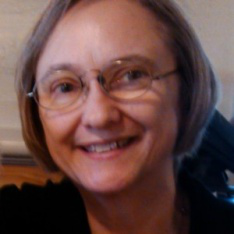Writing Theory, Research and Pedagogy
—Historical Development and Implications for Writing Instruction
Time: 1:30-2:45 p.m. June 21, 2016
(时间:2016年6月21日 下午1:30-2:45)
Place: Room 426 Red Tile Building
(地点:上海财经大国定路777号 红瓦楼426室)
Abstract:
Although the field called writing studies and its offshoot, second language writing are both relatively young fields, they have already produced a rich and varied range of theories and research findings. This presentation will survey the apparent evolution of these theories from literature-based and “current-traditional,” to the process revolution, the post-process response, the postmodernist critical theory period, and the most recent era of digitally-enabled multimodal composing. Implications for writing pedagogy, including both teaching and responding to writing, will be discussed as related to each historical development.
Speaker: Diane Belcher
Applied Linguistics & ESL, Chair and Professor
 Diane D. Belcher is Chair of Department of Applied Linguistics and ESL at Georgia State University. Her research interests include advanced academic literacy, language for specific purposes, cultural identity, and qualitative research methodology. She has co-edited seven books, contributed chapters to a number of edited books, and published articles in the Annual Review of Applied Linguistics, the Applied Linguistics Review, the Journal of English for Academic Purposes, and other journals. She is former co-editor of the journal English for Specific Purposes and current co-editor of TESOL Quarterly as well as of a teacher reference series for the University of Michigan Press titled Michigan Series on Teaching Multilingual Writers. She has guest edited three special issues of the Journal of Second Language Writing. A former member of the TESOL Publications Committee, she now serves on the advisory board of English for Specific Purposes. She has also served as a member of the TOEFL Committee of Examiners and as chair of the TOEFL Test of Written English Committee. She has been an invited speaker at universities in Canada, China, Hong Kong, and Taiwan.
Diane D. Belcher is Chair of Department of Applied Linguistics and ESL at Georgia State University. Her research interests include advanced academic literacy, language for specific purposes, cultural identity, and qualitative research methodology. She has co-edited seven books, contributed chapters to a number of edited books, and published articles in the Annual Review of Applied Linguistics, the Applied Linguistics Review, the Journal of English for Academic Purposes, and other journals. She is former co-editor of the journal English for Specific Purposes and current co-editor of TESOL Quarterly as well as of a teacher reference series for the University of Michigan Press titled Michigan Series on Teaching Multilingual Writers. She has guest edited three special issues of the Journal of Second Language Writing. A former member of the TESOL Publications Committee, she now serves on the advisory board of English for Specific Purposes. She has also served as a member of the TOEFL Committee of Examiners and as chair of the TOEFL Test of Written English Committee. She has been an invited speaker at universities in Canada, China, Hong Kong, and Taiwan.
